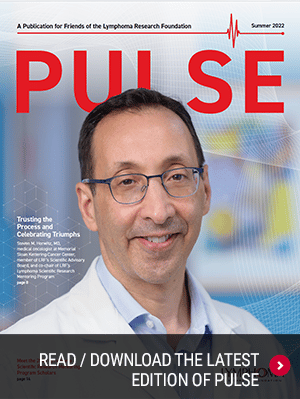ASH 2021: Pivotal Data on CAR T Cell Therapy and Emerging Construct Presented at ASH
Investigation into the use of chimeric antigen receptor (CAR) T cell therapies has expanded rapidly in recent years, including for hematologic malignancies. Results from several key studies were presented at the 2021 Annual ASH Meeting, which demonstrated the use of these emerging therapies in multiple lines of therapy, new disease states, and using novel constructs to enhance responses.
Among these were results from the ZUMA trials, including long-term survival data from the original phase III ZUMA-1 trial examining the use of axicabtagene ciloleucel (axi-cel) in adults with refractory large B-cell lymphoma after two or more lines of prior therapy.
Investigators reported that at five years, the overall survival rate among patients treated with axi-cel was 42.6 percent. Additionally, among those alive at five years, 92 percent needed no additional anti-cancer treatments since their first infusion of axi-cel, suggestive of a potential cure for these patients.
Results from the phase III ZUMA-7 trial supplemented those observed with ZUMA-1, demonstrating the efficacy of axi-cel relative to standard of care (high-dose therapy with autologous stem cell transplant) in relapsed/ refractory large B-cell lymphoma in the second-line treatment setting. In this trial, 2.5-times as many patients in the axi-cel-treated group were alive after over two years of follow up than in the standard of care group, and median event-free survival was over 4-times greater for axi-cel-treated patients (8.3 months) than for the standard of care group (2.0 months).
Similar results were observed in the TRANSFORM trial, which also examined the efficacy of a novel CAR T cell therapy (lisocabtagene maraleucel; liso-cel) as second- line treatment for patients with relapsed/refractory large B-cell lymphoma. In this trial, the median event-free survival for liso-cel-treated patients with 10.1 months, compared with 2.3 months for the standard of care group. Progression-free survival and complete response rates were also higher for patients who received liso-cel compared with those who received standard of care.
Results from the phase II ZUMA-12 study suggest that CAR T cell therapies may also benefit patients with high-risk large B-cell lymphoma even earlier in disease.
In this study, 89 percent of newly diagnosed patients who received a single dose of axi-cel achieved a response, including 78 percent who achieved a complete response at a median 15.9 months of follow-up. Collectively, these results suggest that patients across the spectrum of large B-cell lymphoma may benefit from CAR T cell therapies.
Emerging results from other disease states were also reported. In the phase 2 ZUMA-5 trial, the overall response rate among patients with relapsed/refractory indolent non-Hodgkin lymphoma who received axi-cel was 92 percent, with a complete response rate of 75 percent.
In addition to existing CAR T cell constructs, early results using a novel CAR T cell construction platform were also described, which simplifies and shortens manufacturing and preserves naïve and stem cell memory T cells. Using a novel construct developed using this system (YTB323), investigators observed overall and complete response rates of 75 percent in patients with relapsed/refractory diffuse large B-cell lymphoma (DLBCL) in a phase I study, and expect to see enhanced durability of responses with longer follow up.
Read more highlights from the 2021 American Society of Hematology Annual Meeting in Pulse



